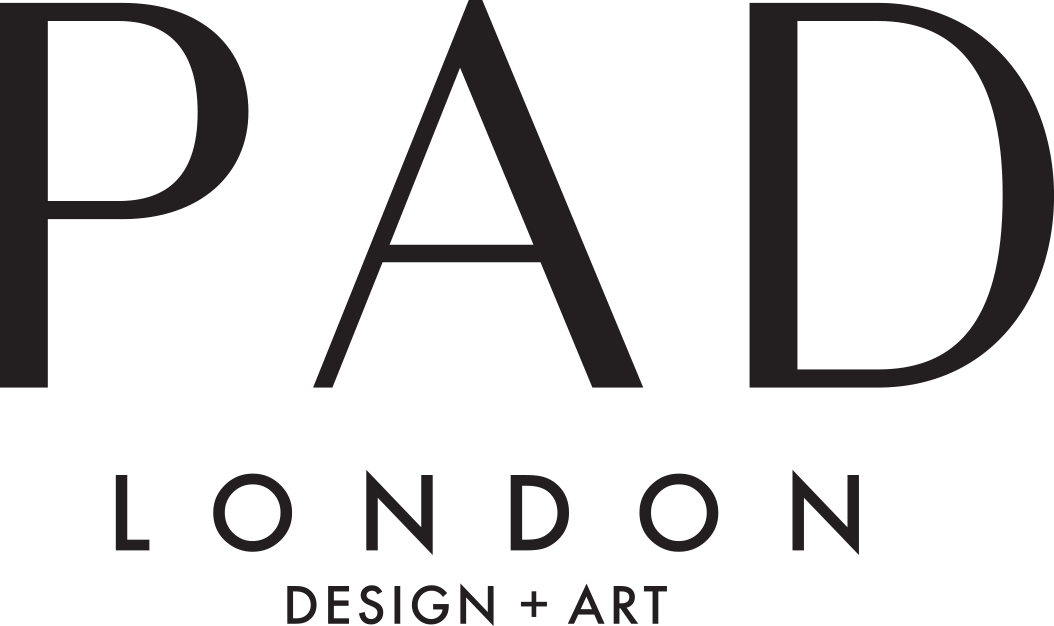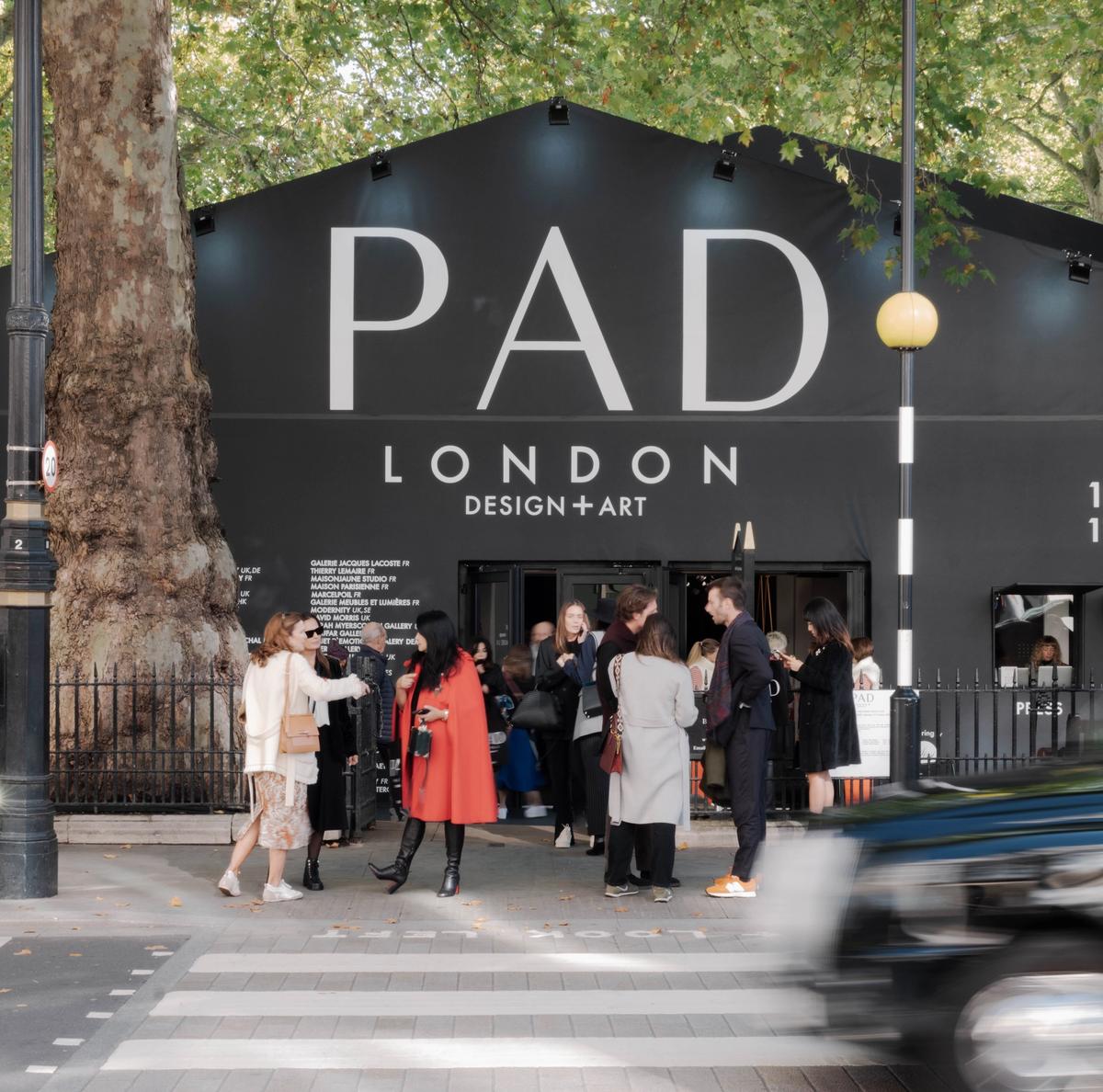Inside the Paris office of the PAD art and design fair the walls are lined floor to ceiling with black and white portraits. “They are all the dealers who have ever taken part in PAD,” explains Patrick Perrin, the fair’s founder-president. This monumental family photo album is a fitting tribute as, hot on the heels of the 25th anniversary for PAD Paris in March, the London edition celebrates its 15th fair this year (10-15 October). It will return to its black tent venue in Berkeley Square with 62 galleries from 16 countries across Europe, Asia and North America. Thirteen of these are new faces soon to appear on the office walls.
Nine new galleries will be exhibiting contemporary design. “There is a move from 20th-century design towards the 21st-century. Contemporary design has matured as a style and as a market. This is the main change in the past 15 years,” Perrin says. PAD London will be showing more young contemporary galleries and designers than ever for this edition. One is the Indian gallery Æquõ, which exhibited at PAD Paris in March to great acclaim. It will premiere enamel, wooden, silver and brass pieces by the French women designers Florence Louisy and Valériane Lazard.
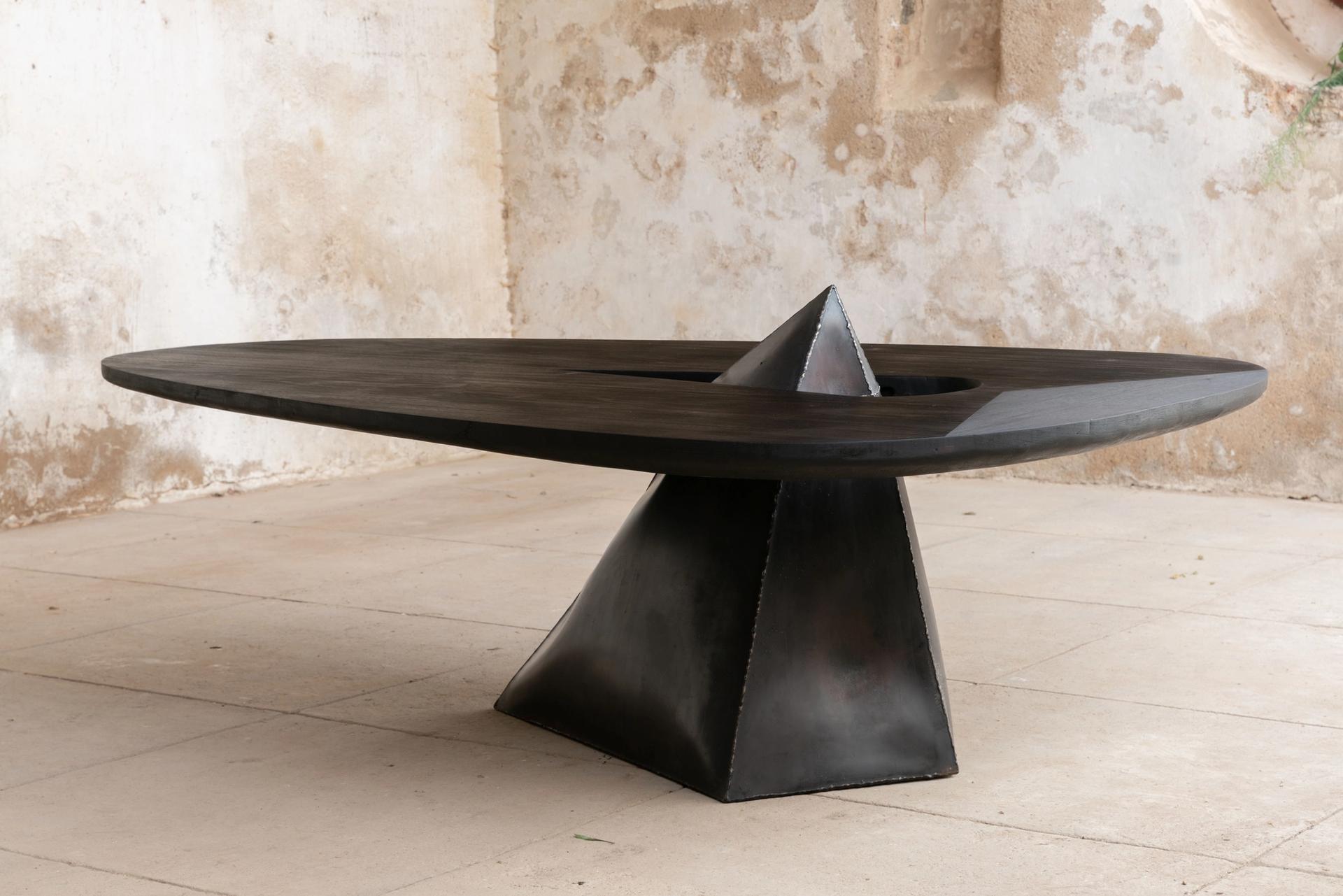
The first-time exhibitor Objects With Narratives will show works by Mircea Anghel, such as Lose Control Table (2021) Courtesy of Mircea Anghel and Objects With Narratives
The Swiss-Belgian gallery Objects With Narratives is also making its London debut after an appearance at PAD Paris. “PAD is the sole gathering ground for today’s most prominent designers and collectors, positioning it as a benchmark for collectibles and where the realms of design and art converge,” says Robbe Vandewyngaerde, the gallery’s co-founder. It will present a show of gravity-defying wooden furniture by Mircea Anghel and bronze lighting pieces by Vladimir Slavov.
Another new gallery, Galerie Philia (which has spaces in Switzerland, Mexico, US and Singapore), will stage the exhibition Gravity and Grace, displaying new onyx works by eight international designers and artists including Studiopepe, Pietro Franceschini and Andres Monnier. “It feels like a pivotal time to become a part of PAD’s community,” says Ygaël Attali, the co-founder and director of Galerie Philia. “As the first dedicated design fair in London, PAD holds an unparalleled position within the contemporary design sphere, and its unwavering commitment to showcasing and nurturing the evolution of design resonates deeply with us.”
Despite the growing popularity of contemporary design, there will be no shortage of Modern design masters. Highlights include a desk by the French designer André Sornay that can be transformed into a games table (Galerie Marcelpoil); 20th-century Brazilian furniture by Lina Bo Bardi, Jorge Zalszupin and Jose Zanine Caldas (JCRD Design); and 1950s pieces by the French pioneers Jacques Adnet and Line Vautrin (Unforget). The fair will also feature eight jewellery dealers including Boghossian, Hemmerle and Taffin and the first-time exhibitor Elie Top, which will show designs inspired by fierce animals.
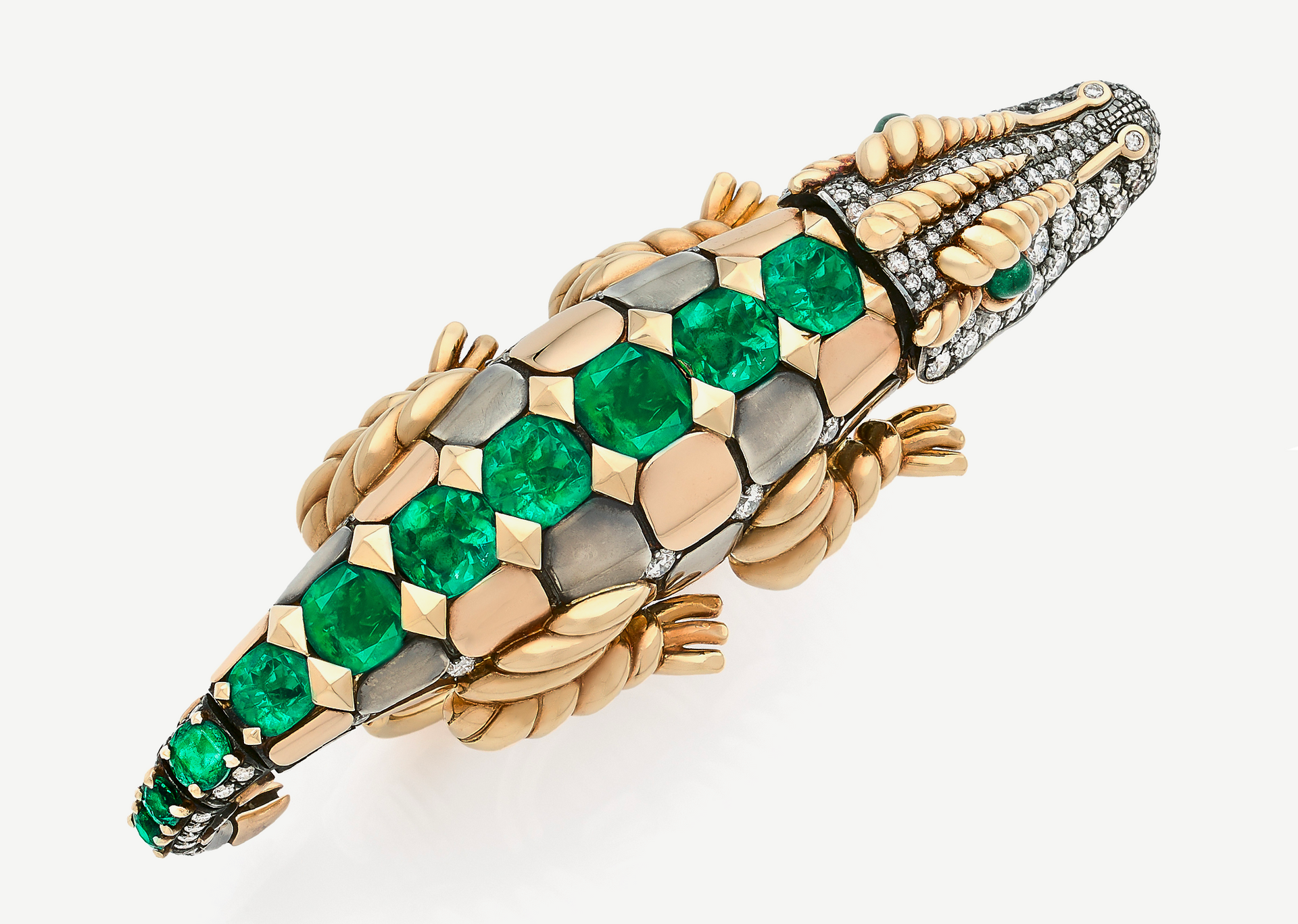
Emerald bouclier ring by Elie Top Courtesy of Elie Top
PAD is hoping to finally return to “normal” this year after two years of online-only activity because of the pandemic, and last year’s real-life edition that was still in part subject to Covid restrictions. Other hurdles are also easing. Last year, Perrin reported soaring production costs with suppliers increasing their fees by 20% to 50%. “It's getting a little bit better,” he says. “We are not surprised anymore. We make sure we get costs upfront.” And still causing a headache are the Brexit-related changes in legislation for shipping and customs. “Last year it was a complete nightmare,” Perrin admits. “Now we are getting used to it.”
Stephane Custot, the owner of Waddington Custot and a former co-founder of the PAD fair, says he has missed its presence on the London scene. “I am already looking forward to its unique atmosphere,” he says. “PAD is like an exclusive club of art and design lovers and connoisseurs, who return again and again through the run of the fair.”
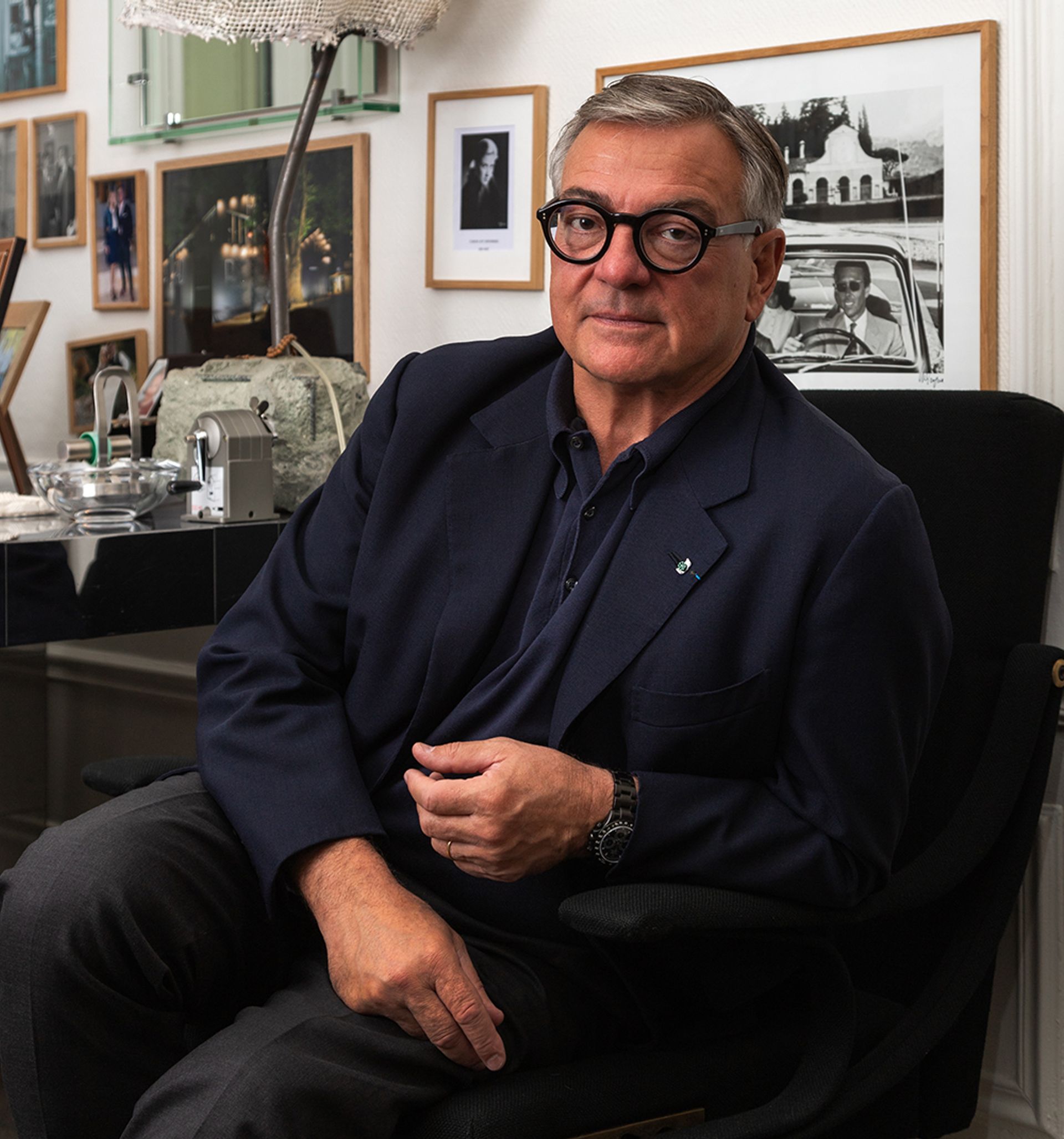
Patrick Perrin, founder-president of PAD © Anna Kaminova
So what do the next 15 or 25 years look like for PAD? Expansion is not the main goal for Perrin, who says that PAD London has reached its size limit in its present location. He is happy with what Custot describes as a “manageable, human” sized fair. “It’s always about expansion, more space, more money, more everything,” Perrin says. “I'm too old for that now. I prefer to be quiet and consistent.” That being said he has tested the design-fair waters in other cities over the years including New York, Geneva and Monte Carlo. He now has his eyes set on exploring a possible boutique-sized summer fair in Saint-Tropez.
Ultimately, Perrin believes the market for design will continue to grow and increasingly be seen as accessible. “The prices of design are quite reasonable—you can have a very nice design collection for less than £10,000. This is absolutely impossible in contemporary art or ancient art. It’s more about taste and pleasure than money,” he says. “Design is something you live with, not put in the bank.”


